With EU support, it’s safer and easier.
In the village of Lužac, near Berane, you will find the agricultural farm “Excalibur” where blueberries are cultivated. Some say the village got its name because it lies next to the river Bistrica, near the meadow (lug).
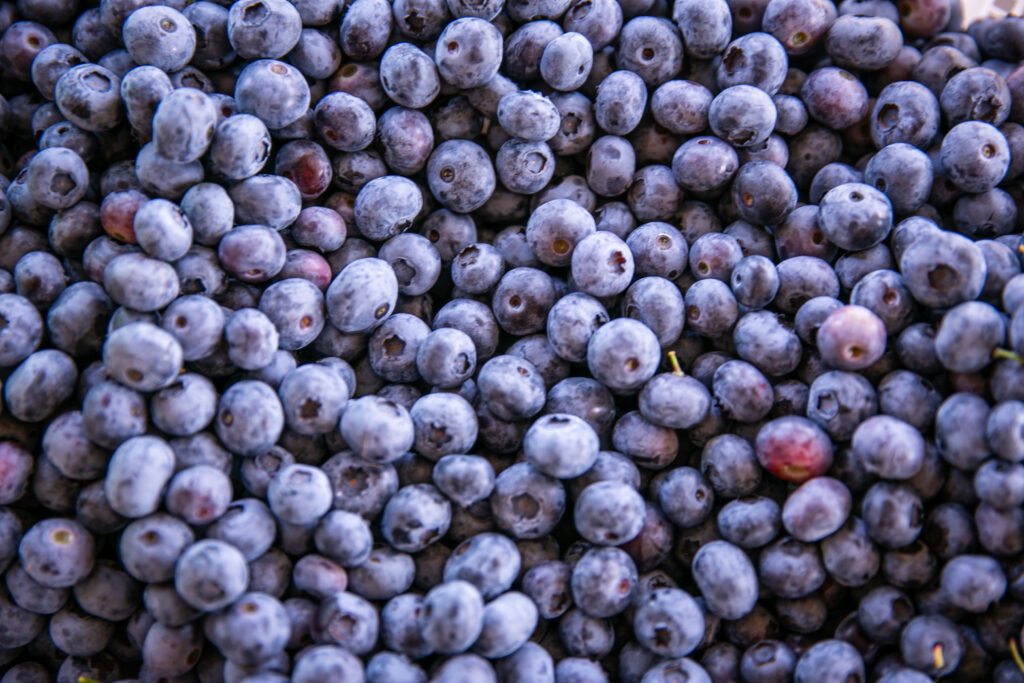
“The altitude of this valley is 680m. So, the climate is favourable, and that’s why these plants look like we are already in the third or fourth year of cultivation, and not the second,” explains agronomist Miloš Vuksanović, who manages the business.
“This cultivation is currently one of the most advanced even in the European Union,” he adds.
Endless blueberry seedlings stretch out as far as the eye can see. The plantation covers one hectare and consists of about 5,000 seedlings. The company “Excalibur” is the first in Montenegro to engage in the cultivation of this variety of blueberry, and they do it according to the most modern standards.
“We have gathered all the best from the world,” Miloš adds with a smile.
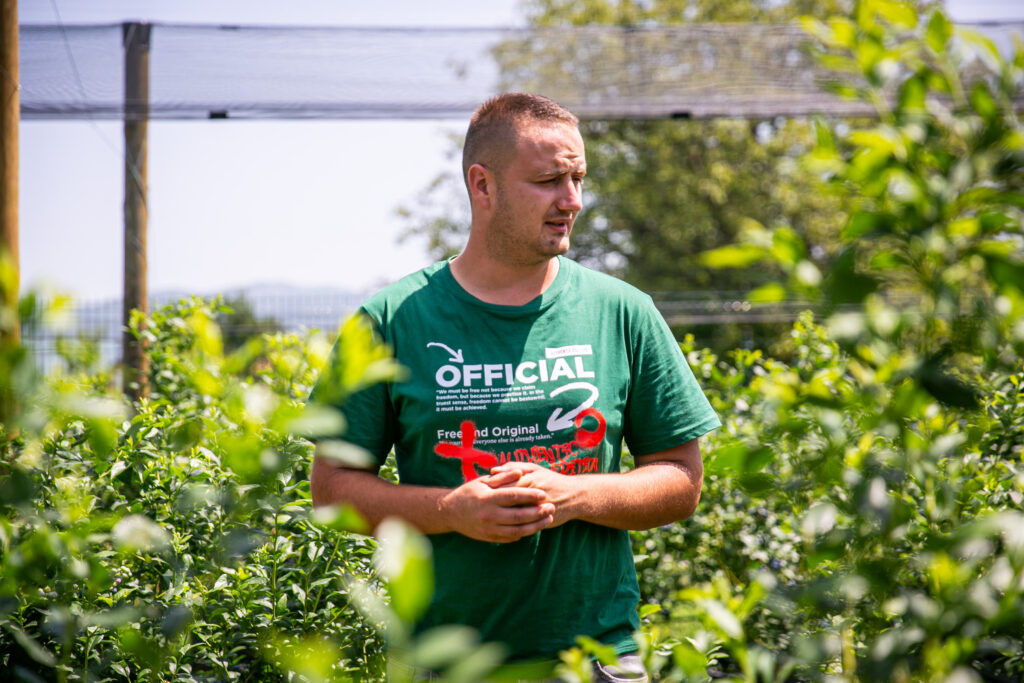
Thanks to the support of the European Union, they modernised their production.
Through the IPARD programme, they received support for the procurement of a tractor, trailer, sprayer, cardan shaft, tractor rotary tiller, plough, mulcher, as well as a front-end tractor loader, and hail nets.
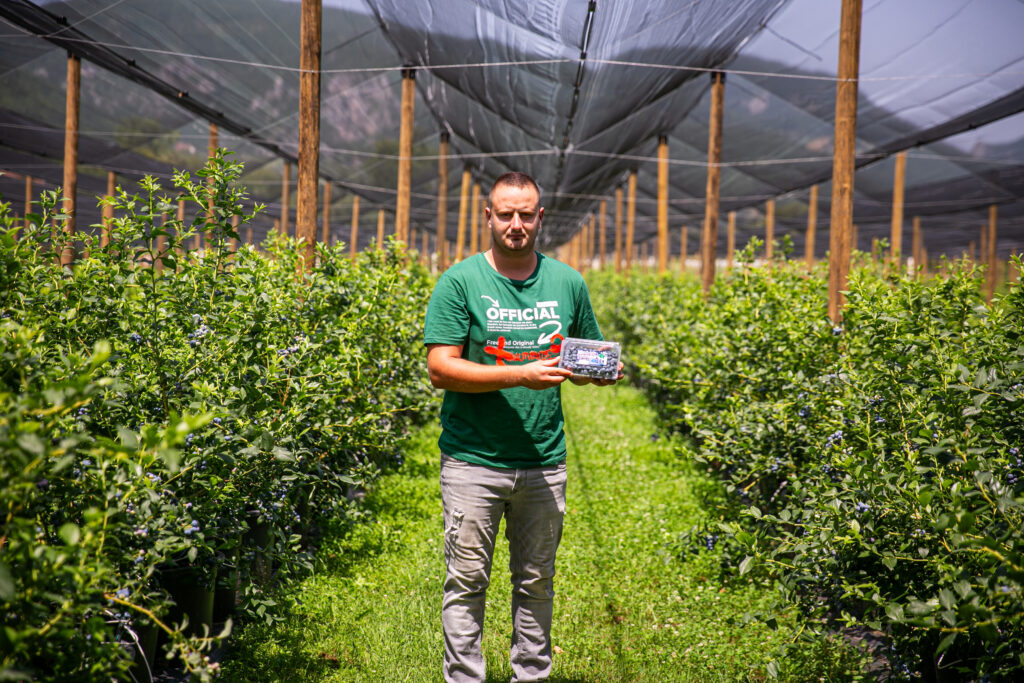
“With the EU’s support, it’s safer and easier. Now we sleep peacefully because there is no fear of hail. The hail net has a dual role: protection from hail and insects. That’s why we have reduced the number of treatments. We plan to be the first to engage in organic blueberry production in the future. We are currently at about 80% organic produce,” emphasises Miloš.
This “spoiled” type of blueberry is popularly called the “queen of plants.”
“It requires a hundred percent attention during the season. That’s why they call it the “queen of plants”. It needs a certain amount of water and food during the day. We monitor that every day,” explains the agronomist.
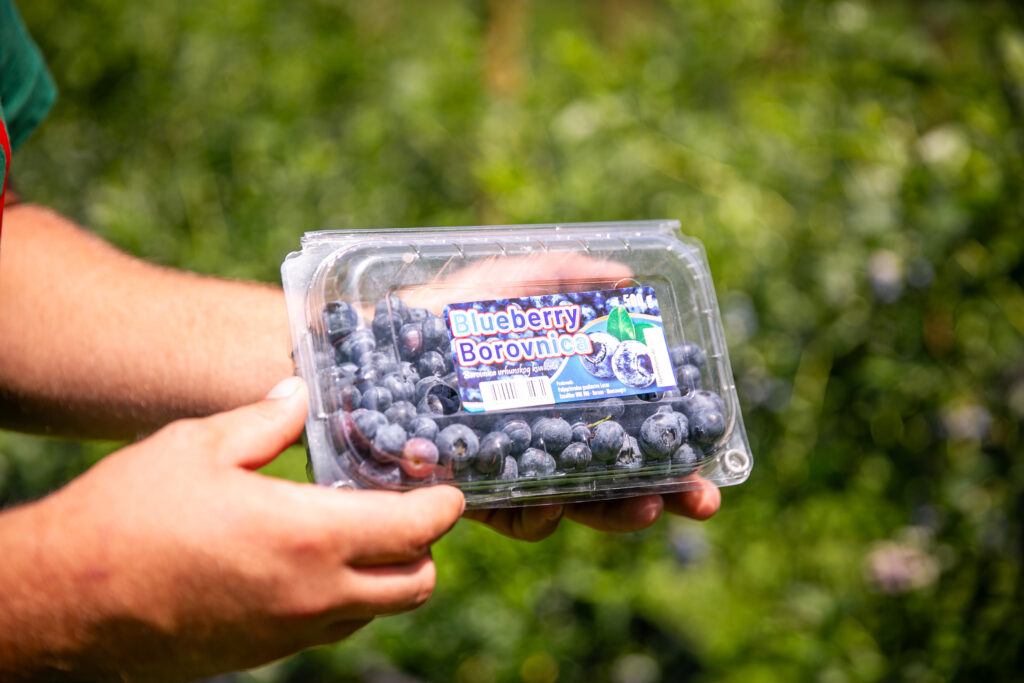
Blueberry harvesting is currently underway. We are greeted by hardworking female workers who carefully pick each ripe blueberry to ensure that the quality of the harvested fruits is first class. That’s why the harvest lasts up to a month.
About 15 workers manage to pick around six to seven tons of blueberries per season.
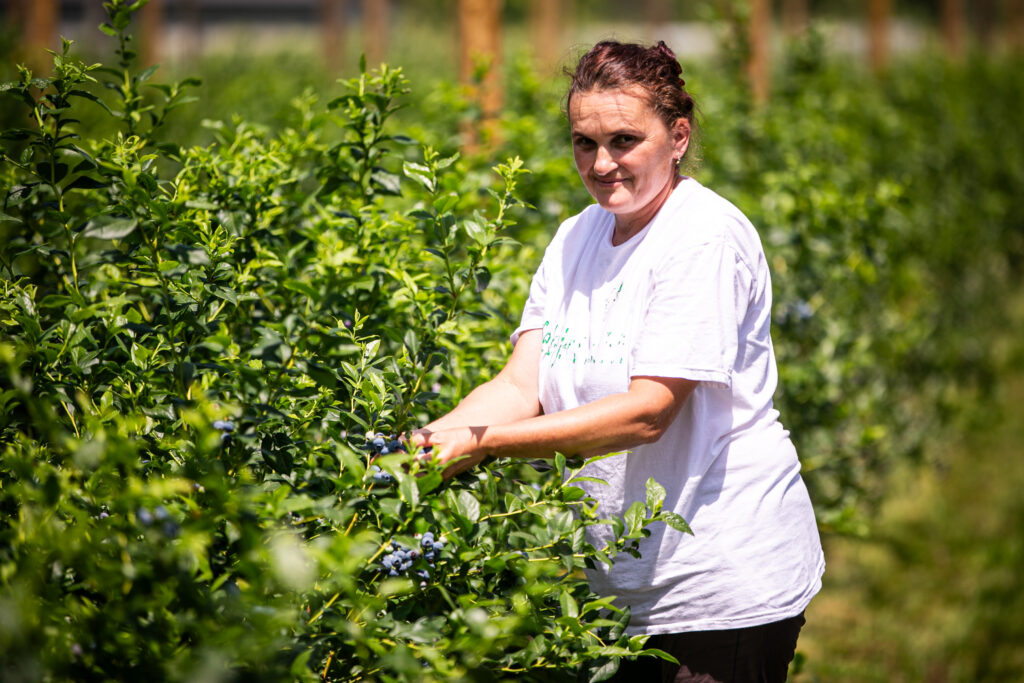
“Average maximum yield can reach 25 tons. We wanted our business to be sustainable and profitable for the next 40 years,” concludes Miloš.
They decided to take this step because they believe that one can make a good living from agriculture, as is commonly said. They plan to expand their plantations and production, as well as apply for new IPARD programme grants.



